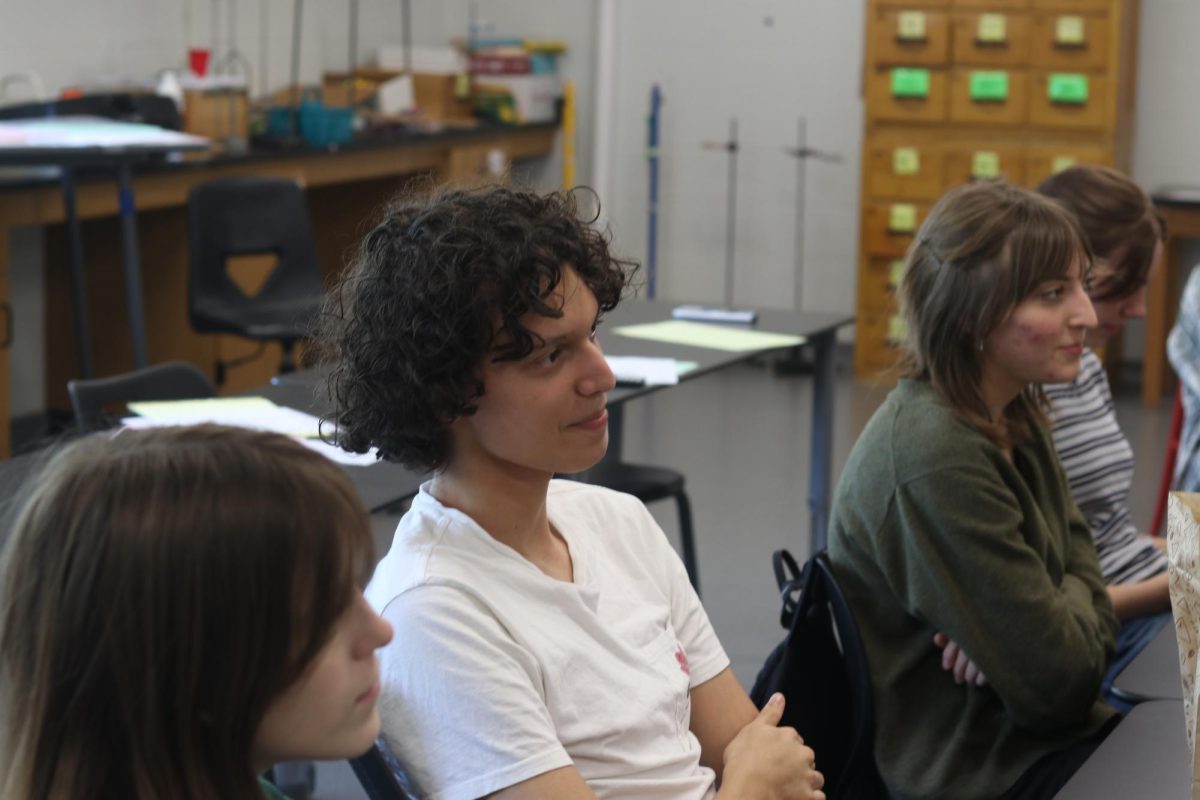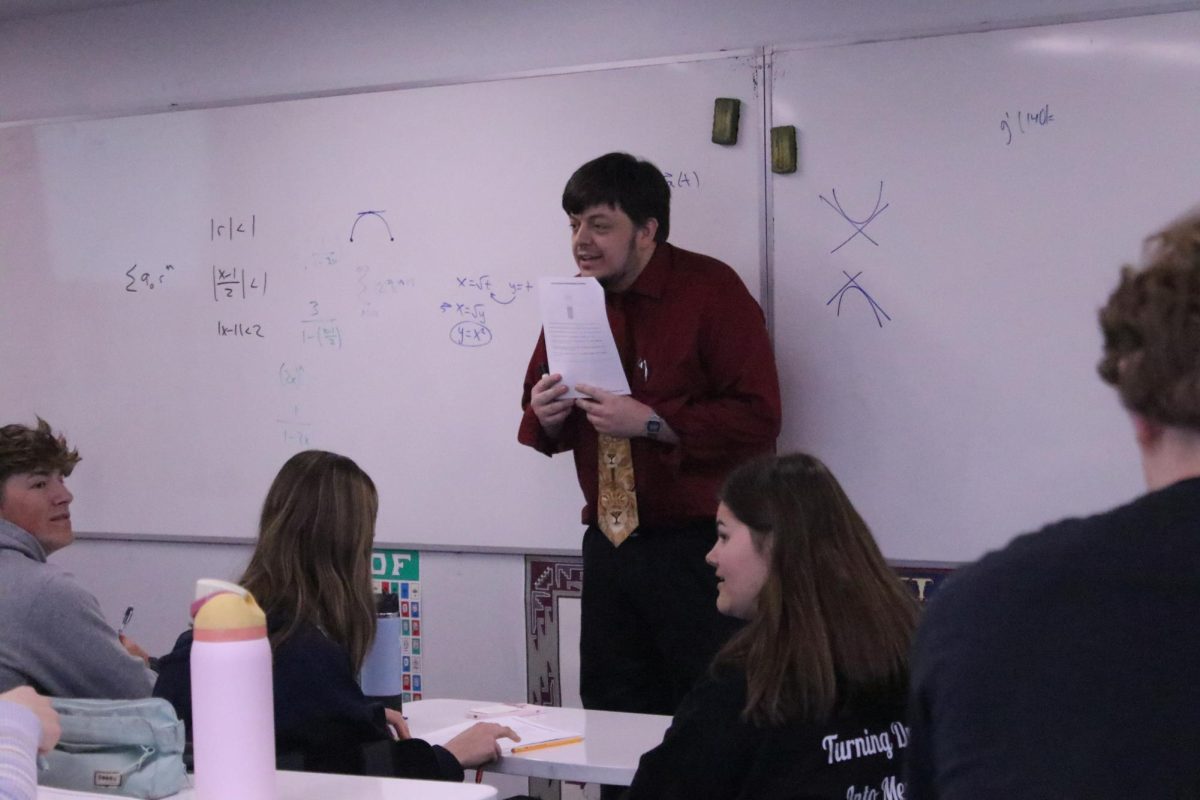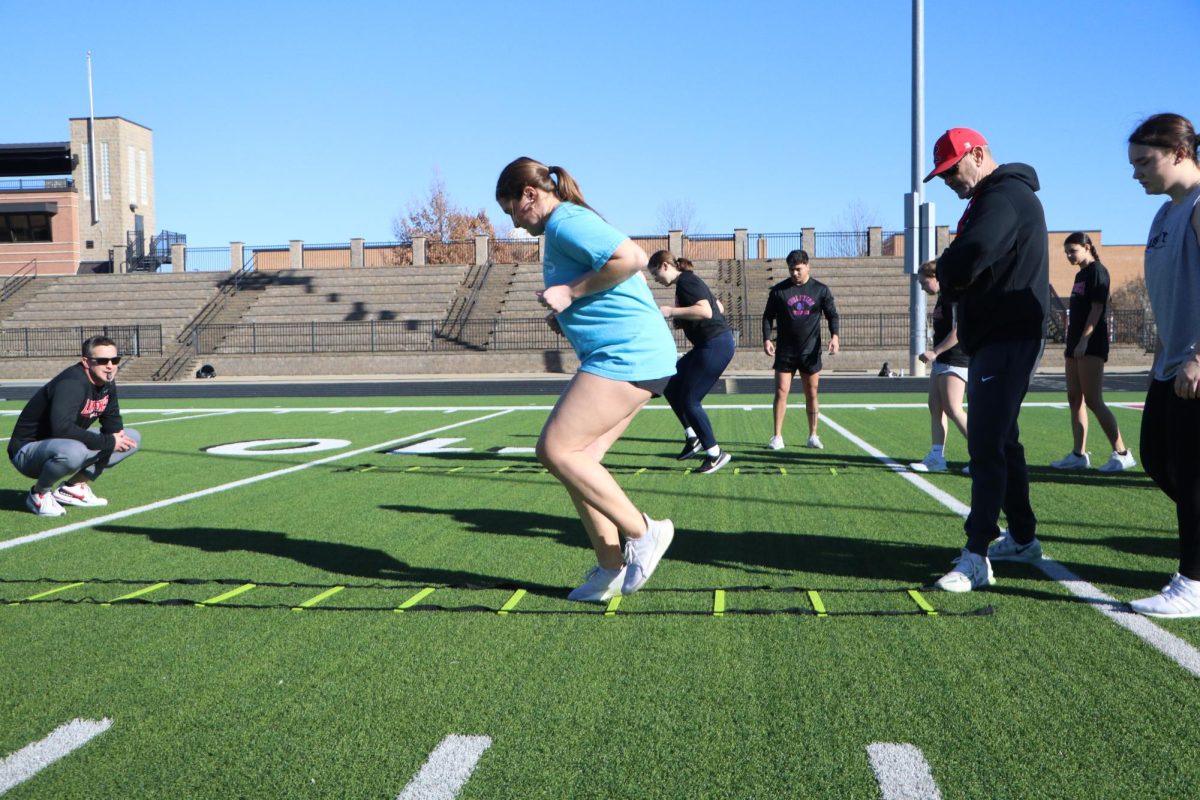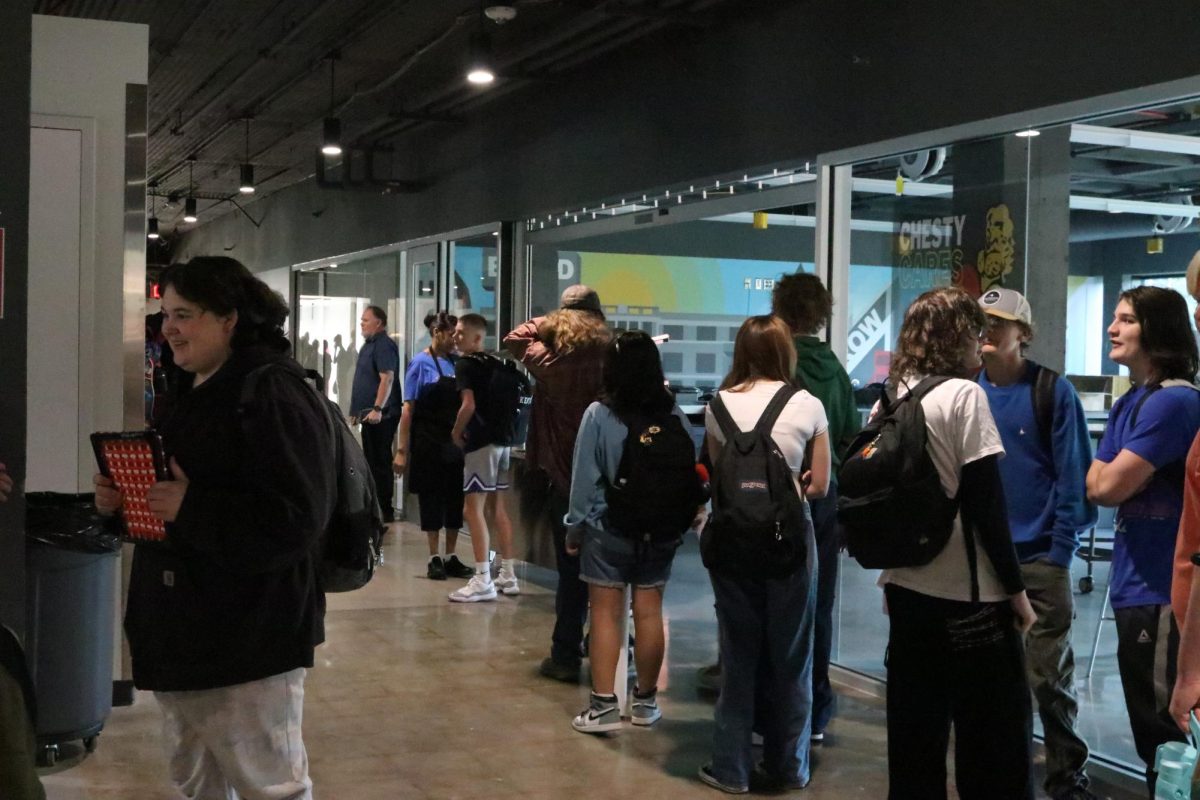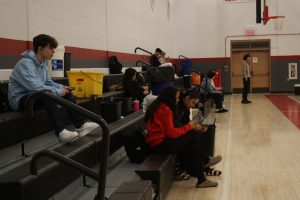Tradition is a concept often stressed at LHS, and in the musical “Fiddler on the Roof,” the characters struggle between keeping and changing traditions set in early 20th century Russia.
This story was chosen for this year’s school musical.
“We tried to look at what kind of talent and technical resources we had available, as well as what shows had been done recently at LHS and in the Lawrence area,” musical director and conductor Dwayne Dunn said. “We wanted a show that we could include a lot of people, that had parts to feature many students, and that we could cover the technical requirements and orchestration for the show.”
The musical marked the start of new traditions for the music and theater department.
“Both Henry [Elliott], the director and Dr. Dunn are new here, so they wanted to do a show that they were comfortable with and that they’ve done before,” junior Meredith Johnson said.
Johnson was the student director for the musical.
“I did a lot of the same things that a director does,” Johnson said. “When people weren’t on stage, I ran lines with them, and then sometimes I’d block a scene here and there or work a scene with people if they needed the help.”
The process started in early November, when auditions were held. The cast worked on the musical until last week when it was performed.
“[For auditions], they gave us a song and they gave us a monologue,” senior Kendra Leet said.
Leet played the role of Tzeitel. Tzeitel is the daughter of Tevye, a poor Jewish peasant.
Senior Lucas Suchy had the part of Tevye.
“I was quite happy with that role, because it’s what I tried out for,” Suchy said. “This was my first time [performing in a play], and I had the main role.”
The story centers around Tevye. He is the father of five daughters and struggles with maintaining his family and Jewish religious traditions. His three oldest daughters, Tzeitel, Hodel and Chava, want to marry outside the traditional customs of Tevye’s faith. He has to cope with how to handle the situation with his daughters and with the edict of the Czar that evicts the Jews from their village.
“The show we are doing was the same as the Broadway original. The only changes we made were simplifying and shortening some of the dances, but otherwise it is the same show,” Dunn said. “We used a reduced orchestration that comes from the publisher, due to cost and space considerations, but the show is often done with this orchestration as it simulates the Klezmer ensembles of the Jewish communities in Russia.”
Suchy noted that learning the musical was slightly difficult due to the fact that the members of the cast “are not quite Jewish.” Since the Jewish faith and customs are strongly represented in the musical, non-Jewish cast members had to be able to adapt to take on their roles.
Along with not being Jewish, the cast faced several other small challenges along the way.
“We had to keep memorizing lines over and over to make sure we got them perfect, and the music was kind of hard to get used to,” Leet said. “You had to memorize your lines along with the blocking of when you had to move around the stage and what to do, and that was kind of hard because you had to multitask.”
While performers were challenged with learning their roles, other problems arose from a director’s point of view. With a cast of 40-45 people it could be difficult to have everyone present for practices at the same time.
“Our students are very involved in school, in the community and in their churches and synagogues,” Dunn said. “They have jobs and responsibilities outside of school. Plus there was a lot of illness going around. The cast did pretty well, but it was still frustrating to have someone missing when they were needed.”
Along with acting and singing, members of the cast had to learn dances for the performance.
“We tried to do a lot of the original choreography so that was a little harder,” Suchy said. “We had some bottle dancers, which was fun.”
The four members of the bottle dance had to be able to balance a bottle on their head while performing.
“Because we have almost no trained dancers, I think some of the dance sections were the most challenging for the cast,” Dunn said. “They worked with great gusto in learning the choreography and had to keep practicing right up until we opened.”
The show was performed on Jan. 24, 25 and 26.
“Since we only do a musical every other year, for many LHS students this was their final opportunity to do something like this,” Dunn said.
Not only are musicals a rare opportunity for students to be involved in, they also allow for a greater variety of people to work together compared to just a play or choir concert.
“I think musicals bring in a different crowd of people than just straight shows and I love getting to work with those kind of people too because it’s a whole different energy, and it’s a lot of fun,” Johnson said.
Being involved in a school production proved rewarding for members of the cast and crew.
“I like just getting closer to other people. I’ve made a lot of friends from it, and it’s something new to get involved in that I haven’t done at school before,” Leet said. “I just enjoy performing, so whenever I’m on stage it’s a fun time.”
Bonding with fellow students was a big part of being involved.
“The students who are part of this production create a short-term family, because we spend so much time together,” Dunn said. “We go through so many ups and downs together that it becomes a bonding experience for everyone involved. Once the show is over, this family will never be exactly together again, but everyone involved will share the experience and the memories of working with each other. It is a very strong bond.”



